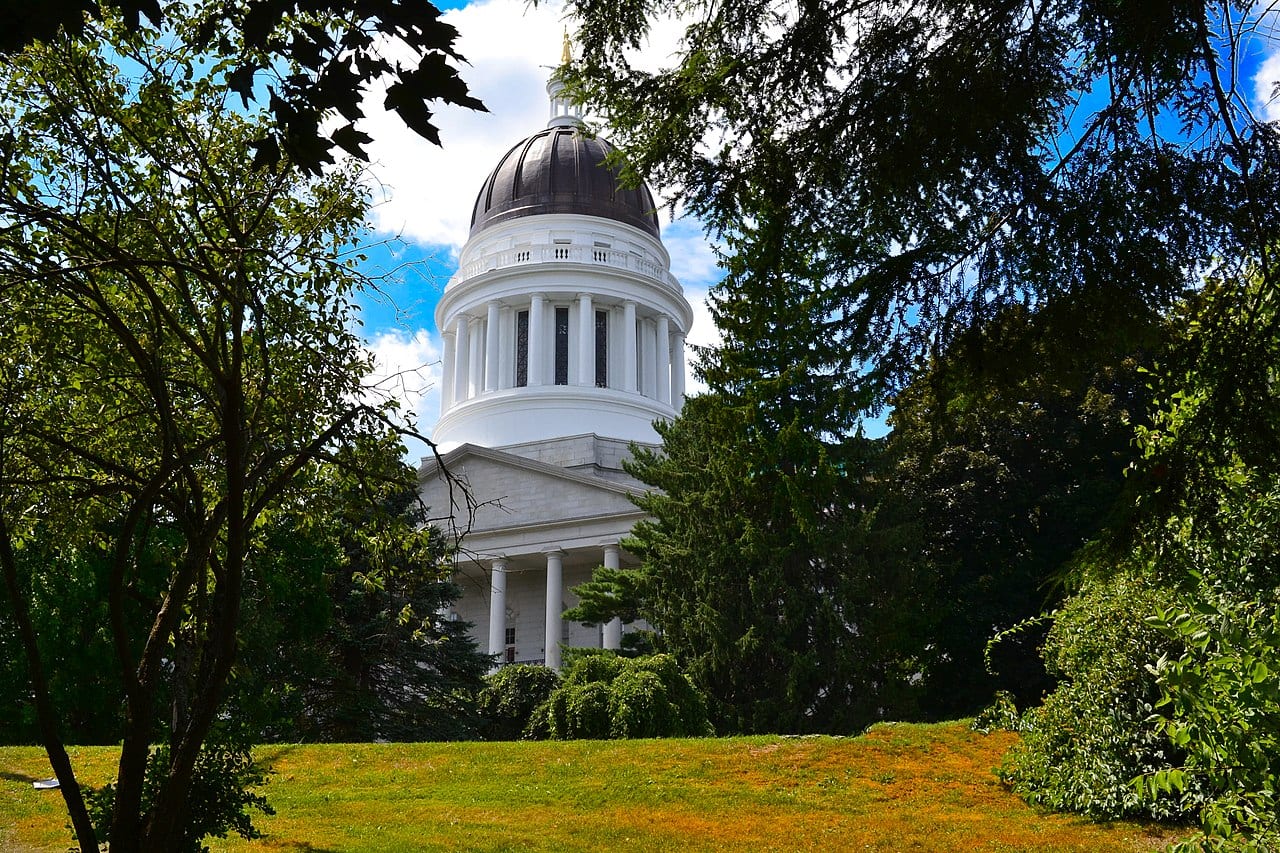On February 28th, Maine’s first-ever carbon pricing bill (LD 434) faced opposition in a public hearing in front of the Joint Committee on Energy, Utilities and Technology. The bill, which was introduced by Rep. Deane Rykerson (D-Kittery) in January, imposes a $5 per ton fee on carbon pollution that increases annually by $5 until it reaches $40 per ton by 2027.
Lawmakers on the TUE committee debated how revenue from a fee on carbon can be equitably distributed back to ratepayers. The original bill language called on revenue to reduce utility rates, but at the hearing, Rykerson proposed an amendment to the bill that will form a legislative study on the different ways revenue can be spent. If passed, the group will be composed of three members of the state Senate, five members of the House, and five members from relevant state agencies and stakeholder groups. Members of the committee noted that perhaps a higher fraction of the group’s members should be non-legislative, and that more experts in the matter should be included in the conversation. Rykerson said he was open to this possibility.
The proposed study group’s objective is to examine different policy options for how revenue can be used, and ultimately make a recommendation to the TUE committee in December. A more detailed version of the carbon pricing bill will be introduced then, and like the current one, it would presumably be revenue neutral in order to prevent regressivity.
I provided testimony in support of the legislation, speaking of the many detrimental impacts climate change will have on Maine’s economy, particularly on its seafood and outdoor recreation sectors. I suggested Maine look at other states’ proposed revenue-neutral carbon pricing legislation, such as Utah’s bipartisan bill from the 2018 session that proposed a tax-swap. Under Utah’s tax-swap, a tax on carbon pollution can replace other existing state taxes, like the sales tax on grocery store foods. Rep. Vicki Doudera (D-Camden), who originally co-sponsored the legislation but did not testify in its favor at the hearing, suggested that Climate XChange be engaged with the study group that helps analyze different revenue allocation options.
Just hours prior to the hearing, Governor Janet Mills (D) gave a speech indicating her commitment to climate action, as part of Maine’s Clean Energy Day. Mills announced that Maine will become the 22nd state to join the U.S. Climate Alliance, indicating the state’s commitment to reduce emissions consistent with Paris Agreement goals. Additionally, Mills called for Maine to achieve 80% renewable energy in the electricity sector by 2030, and 100% by 2050. She also announced the formation of a Maine Climate Council that will be “responsible for developing an action plan and a timetable to meet our emission-reduction goals, and to ensure that Maine’s communities and economy are resilient to the effects of climate change.”
But Mills was hesitant to explicitly endorse carbon pricing in Maine. Her concern regarding Rykerson’s legislation was two-fold: that no other U.S. state had ever imposed a direct fee on carbon, and that she wasn’t sure the impact carbon pricing would have “on the fossil fuel industry as opposed to the local dealers and consumers.” But the Governor did indicate she intended to support and promote strong climate action during her term.
A working session on the carbon pricing bill is taking place at the state house today, March 7th. Lawmakers will likely further discuss revenue allocation as well as how the bill could better address the needs of vulnerable communities.
About 60 protesters spoke against the legislation. Some protesters donned yellow vests, attire symbolic of the widespread Gilete Jaunes protests against fuel tax hikes in France. People Over Politics helped mobilize the opposition, according to Rep. Doudera.
Several of the protesters that I spoke stated that they did not believe undeniable evidence that the planet was warming. Many wore “People Over Politics” stickers, representing an organization that is known for promoting 9/11 conspiracy theories and pushing forward an anti-vaccine agenda. A key next step in the fight for carbon pricing in Maine will be building a coalition of environmental groups and advocates to counter groups like People Over Politics.
Rykerson said that despite the opposition, he believes the bill can play an important role in transitioning Maine’s economy away from fossil fuels and toward renewable energy. He told his committee: “You may think that an electric truck is a pie in the sky, but it’s not too far away.”









